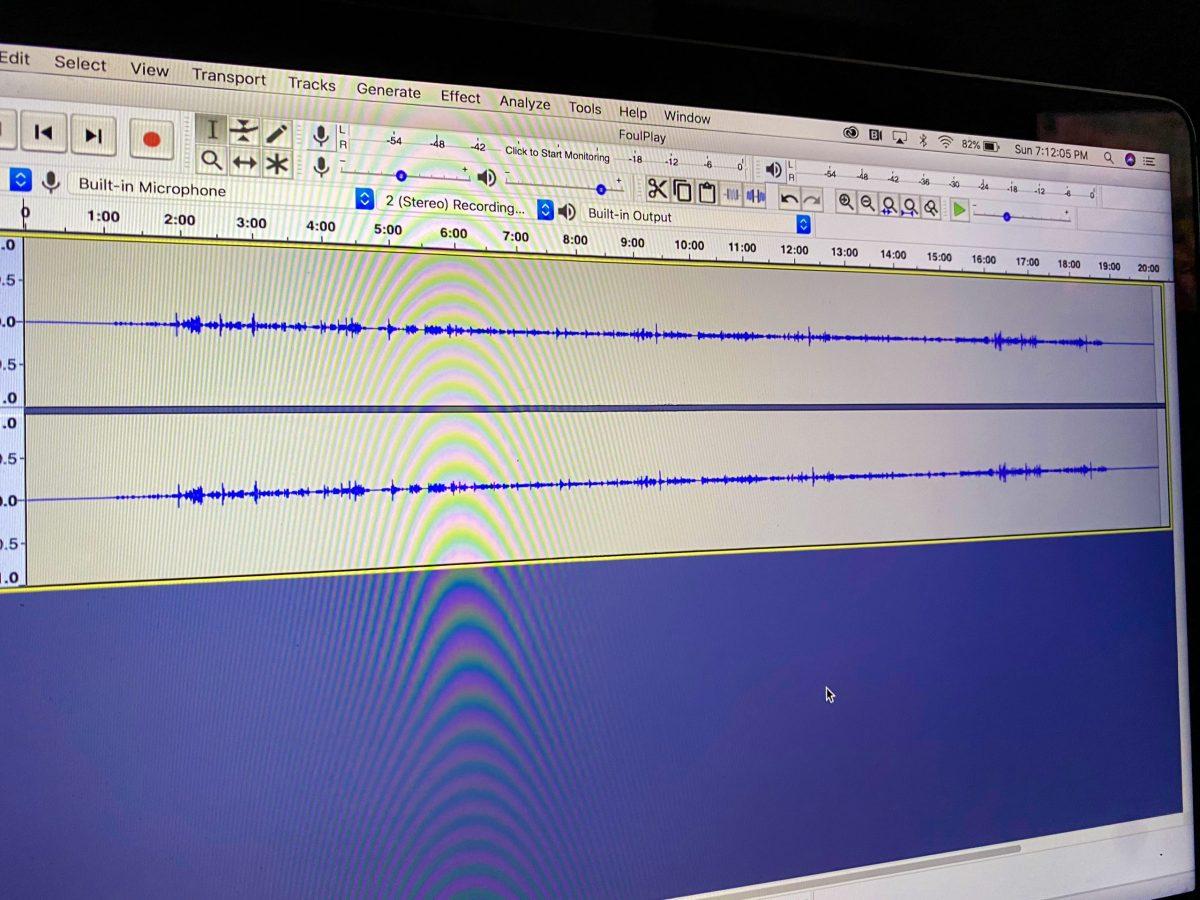Drake political science professor David Skidmore’s podcast “U.S.-China: Searching for Common Ground” is broadening his students’ understanding of U.S.-China relations while addressing areas of both conflict and connection in the relationship between the two countries.
The students of the United States-China Relations course Skidmore teaches will listen to each episode of the podcast either live or recorded, according to the course syllabus. Each episode addresses a different aspect of the U.S.-China relationship, including security, superpower rivalry, technology, and agriculture, with questions posed by Skidmore and veteran journalist Kyle Munson to guest speakers. Skidmore said that students have half an hour to ask questions of the live speakers after the podcast has been recorded and are required to post reflections online about the interviews.
“Each speaker has its own subject, has its own ideals, has its own everything,” said Joshua Warner, a Drake sophomore and political science major in Skidmore’s class. “…And this is their life, so they give all their knowledge about it in like a 45-minute span, and you know, it’s a lot thrown at you at once, but in the end you take away a lot, and you understand a lot more at the end of it.”
Skidmore said while tensions between the U.S. and China have escalated over the past six to eight years, the past year has brought tensions “to another level.”
“The U.S. and China have some differing interests, and also, to some degree, some differing values, but before we commit ourselves to a generational Cold War struggle, it makes sense, I think, to step back and ask, you know, ‘What are some ways we can find some sort of common ground, that can, at least, counterbalance some of the conflicting interests?’” Skidmore said.
Will Tsai, another student in Skidmore’s class, said that the conversational style of the podcast is helpful to students.
“Having a conversation, opposed to the lecture style, is really informative, and I’d say, like helps me, and I know helps other students retain information better,” Tsai said. “Really contributes to our learning.”
Skidmore emphasized the importance of academic and cultural connections between the United States and China. He cited relationships between Chinese and American academics, the “hundreds of thousands” of Chinese students who study at American universities, and the Iowa Sister State relationship between Iowa and the Hebei province in China, which was discussed during the citizen diplomacy episode of the podcast.
“So there’s this underlying, I think, decades of people-to-people connections that have been [built] up and that there’s still a lot of goodwill at that level,” Skidmore said. “And I think that’s something to build on, if we can get the governments moving in a more positive direction.”
Skidmore said that the connections that he and Munson have made in China and the United States gave them a network to draw upon when they needed speakers for the podcast. For an episode on politics, Skidmore welcomed Ren Junfeng, a former student of his and a professor of political science at Fudan University in Shanghai, China. During the podcast, Junfeng discussed his reflections from a visit to the 2020 Iowa Caucuses.
“I think the students enjoyed hearing a Chinese perspective on American politics. Like, one of his observations was that Americans on different sides—polarization—need to be more empathetic toward one another,” Skidmore said. “He thought we didn’t listen to one another very well, and we didn’t show enough empathy trying to understand the other side.”
Skidmore said that the “underlying cause” of tensions between the U.S. and China is the rise of Chinese power to compete with the United States economy, military interests in East Asia, and high-tech industries such as telecommunications and artificial intelligence. Conversely, Skidmore said that the U.S. has suffered setbacks from the 2008 recession and the pandemic.
“So I think whenever a country is rising in power, its ambitions rise as well, so you get, you know, China’s in the South China Sea, and Taiwan, along with the border of India,” Skidmore said. “You can see China sort of testing its newfound power to try to achieve some objectives it’s had a long time, but which it was too weak to achieve in the past.”
Tsai said that “probably every speaker” so far on the podcast has brought up Taiwan, the South China Sea, or both. Skidmore cited China’s treatment of its Uighur Mulsim minority, its state-run economic model, its businesses’ thefts of American firms’ trade secrets, and political rights in Hong Kong as other important points of contention between the two countries.
“The Chinese reject any foreign interference in their domestic affairs, so it’s an issue where they won’t really talk about it with us,” Skidmore said. “And they think that when we bring it up, that we’re trying to undermine the rule of the Communist Party, and that’s unacceptable from their standpoint. But from our standpoint, what they’re doing is an affront to global values, and even to commitments they’ve made through various human rights treaties.”
While Skidmore acknowledged the U.S. and China’s differing interests, he said that the two countries depend on each other so much economically that the two countries are “sort of stuck with one another.” He also outlined areas of common ground, such as a desire to cooperate on climate change and prevent war in the Koreas.
“So I think there’s some areas where we can cooperate, there’s some areas where we can compromise, and there’s some areas where we can agree to disagree and just sort of manage the differences to make sure they don’t escalate or poison other things that we’re trying to do together,” Skidmore said.







